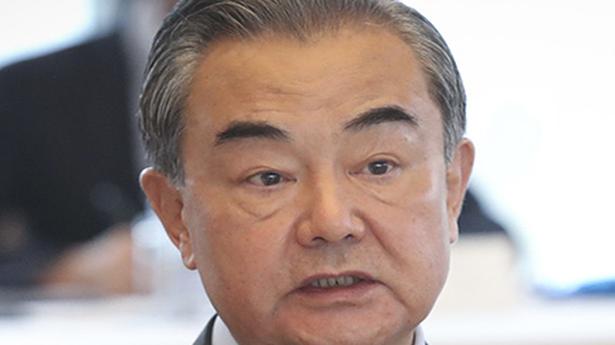
China’s Foreign Minister Wang Yi says U.S. wants ‘Indo-Pacific NATO’
The Hindu
‘Setbacks’ in India-China relations do not suit both countries, says Wang
China’s Foreign Minister Wang Yi on Monday accused the United States of trying to build an “Indo-Pacific NATO” using the Quad and its allies, and said “some forces” were seeking to “stoke tensions” between China and India as well as “sow discord” between China and Russia.
Mr. Wang, in his annual press conference along the sidelines of China’s National People’s Congress (NPC) or Parliament in Beijing, also described China-Russia relations as “one of the most crucial bilateral relations in the world” and as being “rock solid”.
Underlining China’s position on the Ukraine crisis that while sovereignty needed to be respected, so did the legitimate security concerns of Russia, Mr. Wang declined to term Russia’s attack “an invasion” when asked by a reporter.
“We are determined that the relationship is free from interference and discord sown by third parties,” he said.
On the state of India-China relations, Mr. Wang acknowledged that “relations encountered setbacks in recent years, which do not serve the fundamental interest of two countries and people” and called for “relations to move forward on the right track to bring more benefits to our peoples and make greater contribution to the region and the world”.
“The boundary question is left over from history,” he said. “China has long advocated managing differences through equal-footed consultations, actively seeking a fair and equal settlement while not letting it affect or interfere with the bigger picture of bilateral cooperation. I am talking about issues relating to the boundary and territory. I think people should understand this.”
“Some forces have always sought to stoke tensions between China and India and divisions between regions,” he said. “Their attempts have put more and more people in reflection and on alert. More people have come to realise that for China and India, both major countries with over 1 billion populations, only by staying independent can we firmly grasp our own destiny and realise our goals of rejuvenation and development.“













